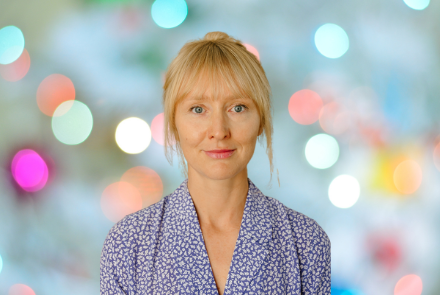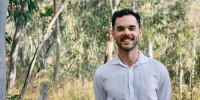
Crawford via the world - Sally Wilson's study journey
A passion for climate action, social justice, and art led Sally Wilson on a once-in-a-lifetime journey that culminated in studying a Master of Climate Change at Crawford School.
Sally’s career started in Adelaide and later Melbourne where she specialised in intellectual property law. After hours she sought to engage her creative side and studied art authentication at the University of Melbourne. This ultimately led to a career change that took her to Mexico, where she established herself as a writer and photographer. Travelling widely in remote parts of the country, she started to notice more keenly the impacts of climate and environmental change. Though it wasn’t until returning home to Adelaide that she discovered her next adventure. Reflecting on her experiences overseas, Sally wanted to deepen her understanding of human impacts on the environment, and this drove her to study the Master of Climate Change at Crawford.
“When I began looking for options, Crawford stood out as having the most dynamic program with courses led by rigorous policy thinkers and researchers,” she said. The program also complemented her previous undergraduate qualifications in law and science. Due to the pandemic, Sally’s study experience was almost entirely online. Still, even in this unexpected context, Sally felt she was massively rewarded by the supportive culture that prevails at Crawford. Friendships were formed world-wide with other students through the shared online seminars, lectures, and intensive courses. Leaving her with positive memories of her study time and new friends with common interests in understanding climate change and supporting climate solutions.
Among the many highlights was learning from experts who are contributing to international climate change reports and vital climate and energy policy research. “This makes the study feel deeply connected to actions happening here and now in social and political spheres,” Sally reflected.
During her time at Crawford, Sally felt mentored by several researchers. A research project supervised by Dr Bec Colvin on Australian remote area energy policies taught Sally the importance of justice-centred analysis of energy policy. Simultaneously, Sally began working as a research assistant on Dr Lee White’s project at RegNet, investigating differences in legal rights and protections available to remote, regional, and urban energy users across Australia.
“Both Bec and Lee have been great mentors for me—and have contributed to my interest in energy policy and commitment to collaborative, mixed methods research,” Sally said. “For me, one of the big strengths of Crawford’s Master of Climate Change program is the focus on research-centred courses and opportunities,” said Sally. Flexible study options to take courses across campus were another enjoyable part of her time at the ANU. By taking cross-disciplinary courses through the Fenner School of Environment and Society, she gained strong insights into climate science, adaptation and systems thinking that helped broaden her approach. This complemented her study with other courses such as Dr Bec Colvin’s ‘Communicating for Environment and Climate Policy’. Sally found this course informed and influenced every other aspect of her learning within the master program.
Sally’s advice to prospective students considering studying at Crawford is, “Jump at the opportunity, for all number of reasons. Climate change studies through Crawford will benefit people seeking professional development, climate change policy expertise, or those wanting to contribute to the challenges and opportunities of the energy system transformation taking place around us. I arrived at Crawford with the goal of deepening my own knowledge and, upon graduating, have gained skills across all these areas,” Sally encouragingly recounted.
Sally is thrilled to continue her climate change journey as a research assistant with Dr Lee White’s team working on a project funded by Energy Consumers Australia (ECA) with the focus of ‘Bringing to light regulatory disparities for electricity access and services across Australia’. She is also actively involved with conservation volunteering, through a local council-run biodiversity nursery, and is determined to apply for a PhD later in the year.
Study with us here at Crawford School https://crawford.anu.edu.au/study
Updated: 1 July 2024/Responsible Officer: Crawford Engagement/Page Contact: CAP Web Team












